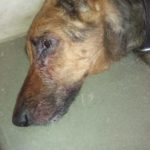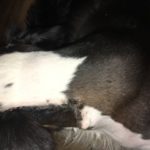Hello,
I am happy to help you here. I have a lot of information on my blog KMDVM.blogspot.com and my YouTube channel. If you go to them there is a lot (I hope all that you could need) there.
I have to say that I rarely advise giving up on these cases until a few weeks has gone by and they are not making any progress. It usually takes these patients a few days (at least 5-7) to get to a stable place where assessment can even begun to be made. In that time it is very important to keep them eating, cage rested and clean. In some cases I water down the food to make it easier to pass and less painful for posturing to defecate.
These patients need time, dedication and a devoted family and vet to help get through the first few (often hard and painful) days. Please see these blogs for help;
https://kmdvm.blogspot.com/2016/05/ivdd-dr-kelcourses-advice.html
https://kmdvm.blogspot.com/2016/08/ivdd-days-immediately-following.html
https://kmdvm.blogspot.com/2017/01/hank-cervical-disc-disease-management.html
and my youtube channel here; krista magnifico and search IVDD
https://www.youtube.com/channel/UCq7z_qtov_Al1dEEfjZt8iQ/search?view_as=subscriber&query=ivdd
i hope this helps.. if you can get your pup to me in Jarrettsville I am happy to help,, it is very difficult to help someone without seeing the patient.
i hope this helps, i wish you both the best, safe safe and be well











Plssss advice me some medicines as soon as possible for my dog aged 7 years
I would consider this an emergency – please get her to the vet NOW. This isn’t something we can fix online.
I agree
Please get her to the nearest vet right now
Wondering if you have gotten to a vet yet?